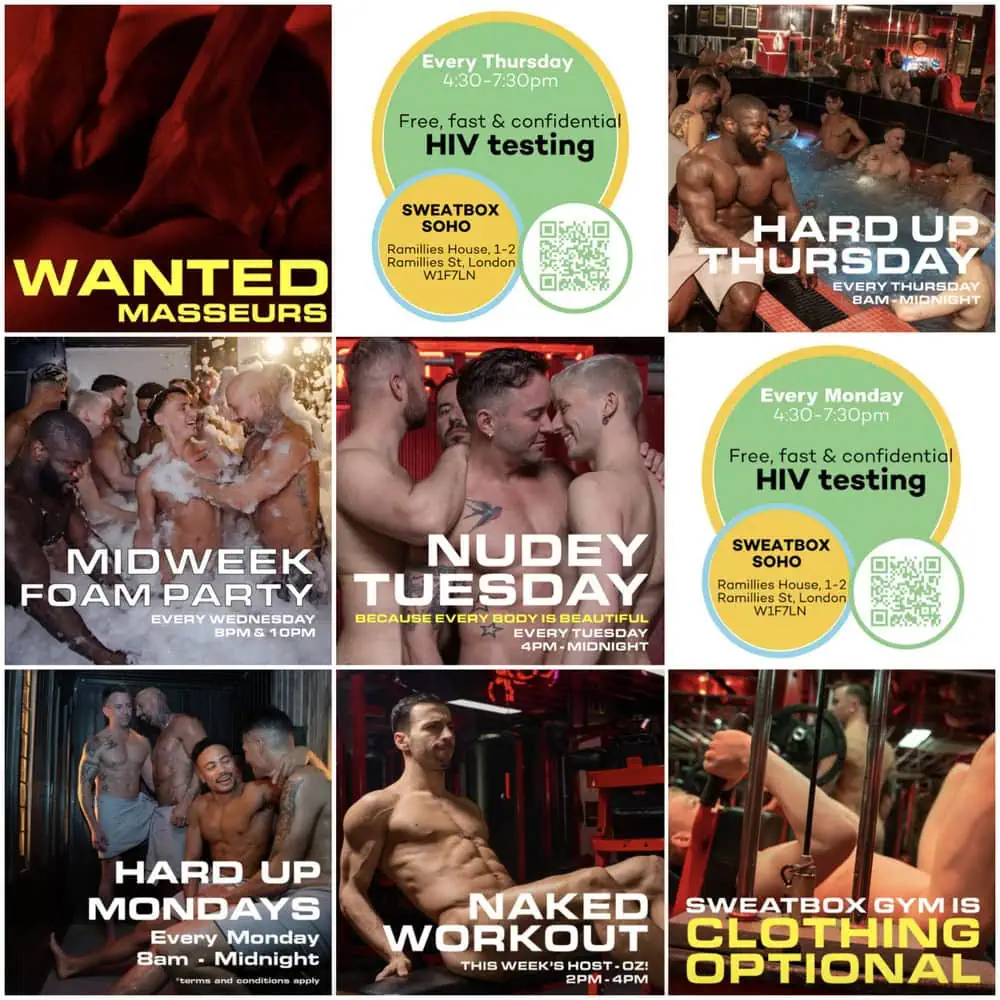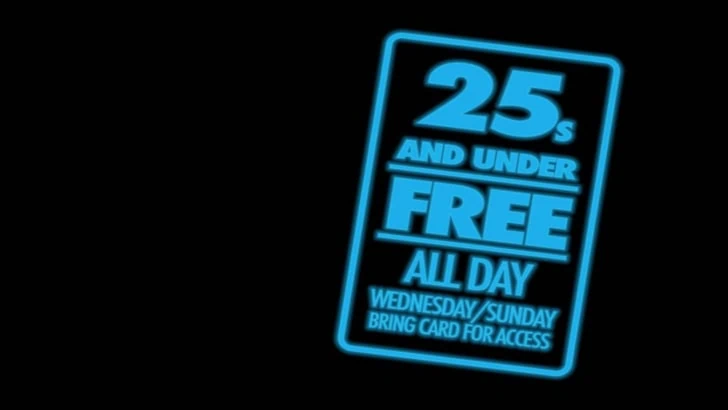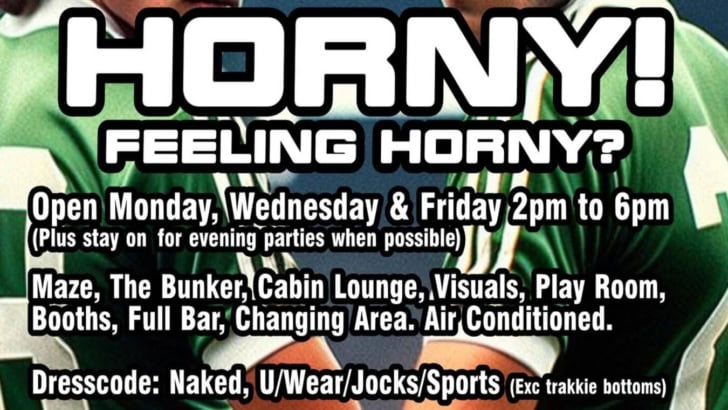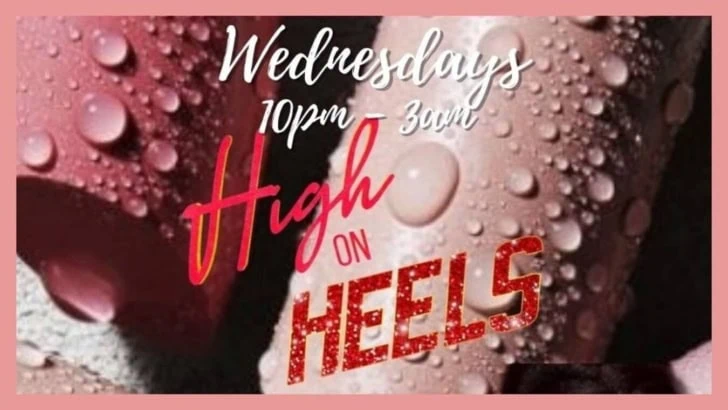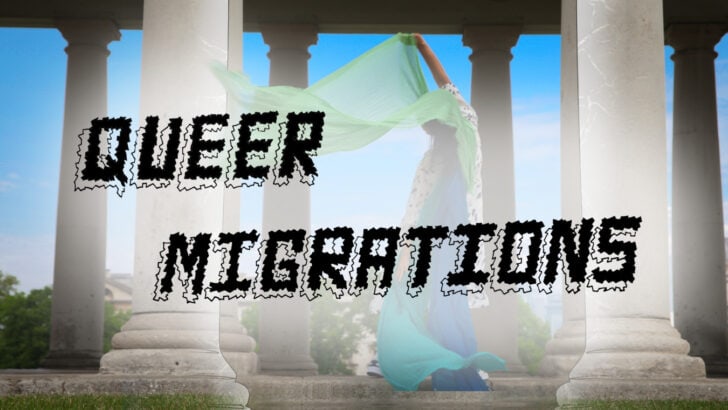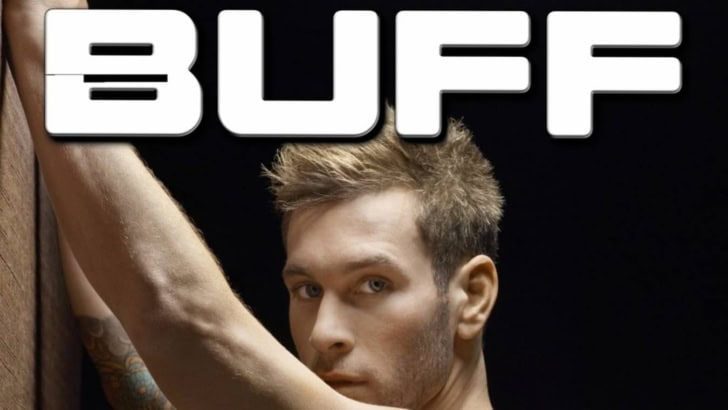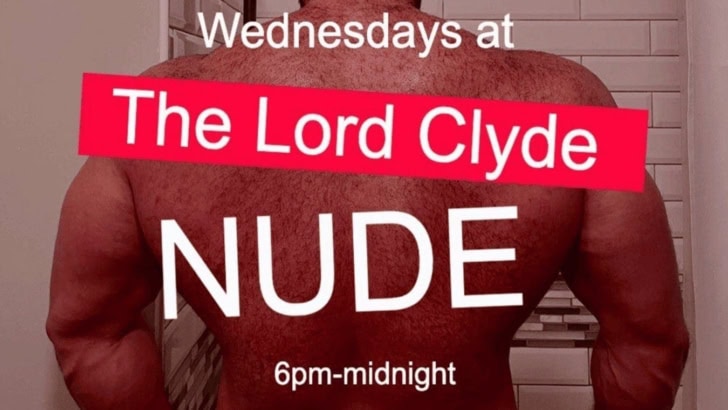Ardent followers of Islam often harbour negative attitudes towards gays and in most of the Muslim-majority world homosexual activity is illegal, carrying the death penalty in nine countries. Even for most Muslim families living in the UK, homosexuality is still not considered socially acceptable.
With the BBC recently pulling a ‘gay Muslim’ feature from its programming through fears of religious repercussions, QX decided to give the subject the open coverage it deserves. Speaking to various gay men living in London, from the UK, Kuwait and the United Arab Emirates, we find out what it’s like to grow up gay and Muslim today…
By Patrick Cash
Hasan Tas, 20

My parents… It was the first thing they knew about me being gay so it was a big thing for them. My Dad just kept quiet, rather than being angry, and my Mum did the talking on behalf of my Dad and it was like “get out of the house, get out of the house”, and I was like, “yeah, I’m gone anyway.”
When they kicked me out I was with another guy, actually, so I straight away moved in with him. And then the next day, because Muslim people are quite close, my Mum was like, “come back, come back”.
The Muslim thing didn’t affect me too much at all. I was just like an ordinary English boy. My family are from Turkey but they’re not practising Muslims, going to the mosque. But back in Turkey if you are gay, people look down on you.
My family in Turkey don’t know about me being gay because they’d take it hard. The last time I went to Turkey when I was eighteen, there was a gay boy there in a bar. He was quite camp, and when my Turkish family were away, me and this gay boy started talking. It was just that in a bar, talking. And then my Turkish family came over and said, “why are you talking to him?” and I was like, “so what?” It was quite an awkward situation, but they’re just Turkish, you know.
The gay thing wasn’t known by my school friends. But when it was with family, where I could chill and relax, it was an effort to pretend to be someone that you’re not. This is my environment. It’s hard having to go through the process of coming out and waiting for acceptance and coming out to the scene, but once you have done that, everything is easier and smoother.
I’ve accepted myself for a while. I wasn’t bothered about being accepted either: if I wasn’t accepted for being gay, it’s something they have to deal with, not to do with me.
Tareq S. R. De Montfort: Artist

In Kuwait it is illegal, but that doesn’t stop people going about it. It’s a very commonly practised thing, even for ‘straight men’ to have sex with other men, because the gay identity isn’t exactly the same as here in the West – having sex with a man doesn’t instantly make you gay. At one point where I was almost arrested by the police they were asking, “so which one fucks and which one is getting fucked? Because we’re only going to arrest the one that’s getting fucked.” You’re born a man, so how dare you want to be something similar to a woman.
Islamic law at the end of the day is complete bullshit and Sharia law is not connected to the Koran. Sharia law was invented after the death of the Prophet by the Fiqh Committee. The Prophet died and people didn’t know what to do and so some leaders came together and decided on these rules, and a lot of these rules come from the Hadith, which are not divine law. The Koran itself does not outrightly condemn homosexuality.
In terms of regard to the Prophet, if it’s said that all Muslims are supposed to copy everything that the Prophet did in his way and no gay men were ever harmed in his lifetime, and if the Prophet tolerated homosexuality, then no Muslim has the right to cause violence as a result of it.
I call my art an Islamic avant-garde. It goes even further than progressive thinking and, because my ideas have no boundaries, there is complete tolerance, because my view of Islam goes back to some very early forms of it. One of the founding elements of Islam was ‘al-hilm’. It was adopted by Mohammed and it was exulted into a name of god, ‘Al-Haleem’, a divine state, one of the most beautiful names, and that for me is the epitome of an Islamic Arab identity: complete tolerance, calm, serenity, acceptance.
One may say that it was Islamic scholars that gave the West modernity, and now we’re the ones who have gone backwards due to some misogynistic, homophobic bigots. And it’s us, the all too silent majority, who are the open-minded ones, who are the cosmopolitan, modern thinkers of Islam, who have allowed this to happen. It’s not their fault for being misogynistic bigots, it’s our fault for allowing our identity to be taken over by them. Islam is an identity, a religion, a philosophy, a wisdom, which has been bastardised by Western ignorance, but a lot more so by Islamic ignorance itself.
Omar Khan: Hospitality Industry
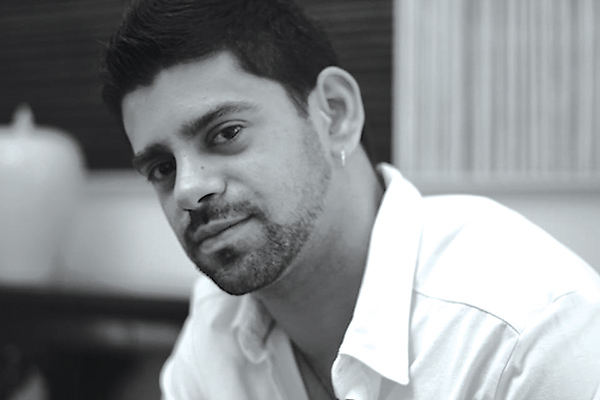
It was very difficult to reconcile my homosexual feelings with my religious identity. I consider myself agnostic now, though I was raised as Muslim and I fulfilled many obligations, like Ramadam and the different festivals like Eid. At age fourteen or so, I used to observe as many different practices as possible because I thought that having faith was a way of forgiving myself for what I thought were sins that I was committing.
When my parents started realising that I was going out of my way, they did question it a bit more, and I started to question it myself – why am I doing this? I started learning Arabic and my parents… Well, they didn’t want me to become a fundamentalist!
When I realised I was coming to the UK came the change. I knew that I would be set free eventually, and that if I didn’t start accepting myself, nobody else would. I met a lot of people in Dubai in a very underground scene who were Muslim, Hindu, Christian, Catholic, and they were all comfortable with themselves.
I’d say when I came to the UK I totally gave up on my religious identity. I didn’t tell my parents, they questioned, of course – a mother always knows. How I came out had a big impact on that because unfortunately I wasn’t outed by myself, I was outed by a friend of mine who came over with me from Dubai and on my eighteenth birthday called my parents and told them “your son is gay”.
He’d basically turned into a religious fundamentalist, and he explained to them: “I can help your son, I want to save him, I can introduce him to this person and this person, etc and through spiritual teachings I can rid him of sin”. That was when I realised “right, okay, so someone is using religion against me.” It scarred me.
My parents called me on my birthday – I’d planned a big night out with friends in London, and I was getting ready at home, when I received this call. The evidence by that point was just so overwhelming that I confessed. I also felt a bit safer because I was here and they were back in Dubai. But it was heartbreaking for me, for them, my mother couldn’t stop crying.
My father was the most interesting. He didn’t cry, he didn’t scream, he didn’t shout, he actually talked with me. And he listened. He wasn’t supporting it, but he wasn’t throwing me out either or neglecting anything I had to say. But he also felt that I should have communicated a little more to them. That was their biggest disappointment, that I didn’t speak to them and I lied. But you have to when you’re growing up in the Middle East.
It’s been ten years now. The first five years or so weren’t easy, both for my family and myself. I’d say time is the biggest factor that heals, particularly within these Muslim communities. My family have accepted that these are my choices, they just don’t agree with it and it’s very rarely discussed, at least not openly. It’s kept within the immediate family, but let’s just say I wasn’t very good at keeping things quiet.
If I were to marry a woman but I were still having sex with men on the side, people could say “he’s completed his obligations.” It’s seen as an obligation to get married, to have children, and having those obligations in place can mean that you can do anything else. Personally, I do want to get married and have children, but I want to have them with a man. Whether that will happen in my lifetime, and be accepted in a Muslim society, I don’t know. I doubt it.
Alp Haydar: Cabaret Artist
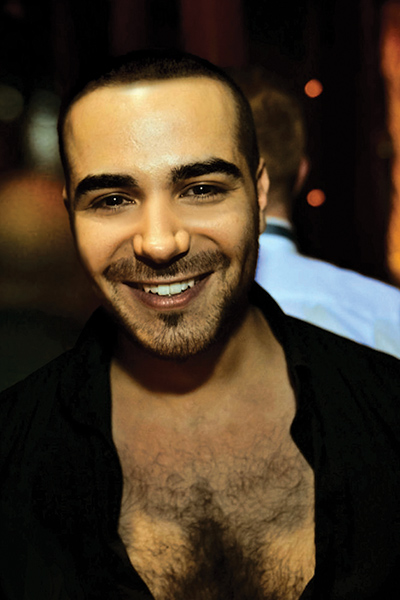
You grow up viewing the world around you with cynicism, and sometimes envy – and however much acceptance was on offer through friendly teachers at school, or progressive commentary in media, being gay felt wrong, and very much like “the infidel’s problem” – not something you had any dialogue for at home, because within our community it just didn’t exist.
I don’t practice Islam, because, at best, Muslims are encouraged to view homosexuality as a sickness. At worst, it’s a crime punishable by death. Unlike Christianity, there are few splinter groups, or water-ing down of rhetoric – whatever the “higher truth”, theirs is one I am unable to subscribe to. On the various occasions I’ve tried to engage my family about their only son being gay, it’s been met with disastrous results.
Before Islam will go near the issue of same-sex anything, they will need to address the issue of single sex rights – the oppression of women. My toes curl when I meet, or see on television, Muslim women who insist there is no problem and that it’s their choice to wear the veil, that they can do anything they want. My thoughts go back to my childhood, again to that sense of shame I felt and not wanting to face that “line in the sand” in front of me I wasn’t allowed to cross. You will tell yourself anything to feel a sense of control and empowerment over your environment.
• Alp Haydar will be hosting the ‘Boylexe’ male burlesque show on the first and last Friday of the month at the Shadow Lounge (5-7 Brewer Street, W1F 0RF) from June onwards.
Asifa Lahore: Muslim Drag Artist

Islam was a huge part of my upbringing and I still pray everyday, fast during Ramadan and give to charity regularly. I don’t believe sexuality is a choice, you can’t control who you love. However, there are things I can control like not drinking alcohol, not engaging in promiscuity and not eating pork products. That is me as a person and I accept myself and live by the choices I make. I also accept others for who they are and don’t judge them due to their choices. I believe religion is love and none of us are perfect, including me, so who am I to say what is right or wrong?
I think all LGBT people worry about coming out. It’s something we do every day in one form or another. My siblings knew about me from a young age but my parents were a big challenge. They asked me a lot of questions, some I had the answers for and some I didn’t. There are no words for “gay” in the South Asian languages and the ones that are used are homophobic so it was hard explaining to my parents about something that was so alien to them.
My partner and I entered into a civil partnership and my Mum attended the ceremony. In a weird way, the civil partnership made sense to my parents and “legitimised” our relationship. Marriage is very dear to people of faith and my parents saw it as equal to that. My parents are still supportive to this day.
I expected the gay community to be welcoming and a place where I could be myself when I arrived. That wasn’t initially the case. Many people have such stereotypes of Asian people and I found myself having to defend myself for identifying as a Muslim, facing subtle racism and being introduced to labels like “curry queen”, which at first I found very offensive.
The older I got, the more comfortable I got with being Muslim and Asian on the scene and now I don’t feel I need to defend myself. The scene has changed so much from when I started 10 years ago. There is so much more diversity now with people of different cultures and creeds accessing it and that’s why I love it.
• Asifa Lahore’s LGBT cover of ‘Tum Hi Ho’ is available to watch on YouTube now.
